Today the English department will be holding a very special celebration. Ellen Brinks is retiring this year, and as sad as we are to see her go, we are sending her off with our best wishes at this upcoming event. To honor her here on the blog, we’ve been collecting memories and well wishes from a few people who studied and worked with her over the years.
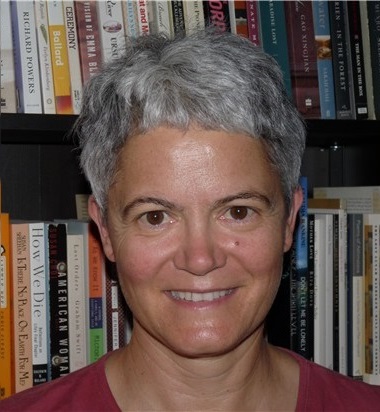
Airica Parker: “Best to you on your continuing journey and thank you for all of your contributions to our department and community.”
Jill Salahub: “When I think of Ellen, my initial thoughts are always of her kindness, her sense of humor, and her super cute dog. I have also always appreciated her commitment to her students and her colleagues, to being a good person and doing the right thing.”
Olivia Tracey: “I met Dr. Brinks for the first time as a prospective MA student visiting CSU. I still remember walking through the campus with Dr. Brinks, and how generous, honest, and supportive she was, as she would be during the rest of my time at CSU and in the years since. Since that first encounter, Dr. Brinks has been a valued advisor and mentor, and someone who I admire deeply. She has invited me to be a more conscientious and diligent writer and scholar and has supported and encouraged me in my teaching and continuing academic work. Most of all, however, Dr. Brinks has always welcomed me with a smile, a true willingness to listen, and a thoughtful, considered wisdom, just as she has welcomed and encouraged so many students. I wish her all happiness as she travels from CSU and into her new adventures.”
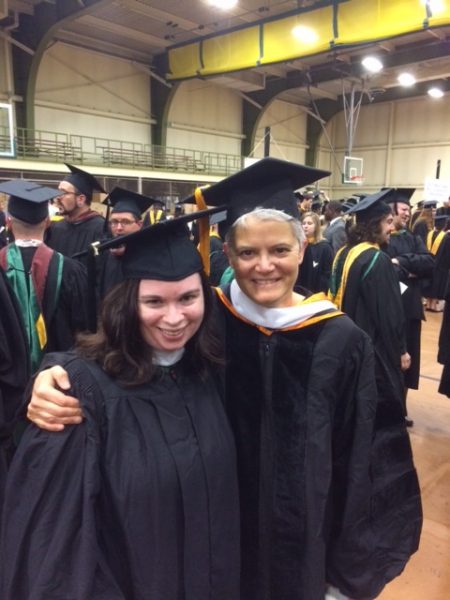
Catherine Otero: “I was lucky enough to have Ellen as my professor for my freshman honors course and then went on the Community Health and Education program in Zambia with her. One of my favorite memories of Ellen is sitting at the kitchen table at the hostel in Livingstone, Zambia with her and having a wonderful chat. I had been on the African continent for four months by that time and was extremely homesick and wondering about how I was benefiting the Livingstone community, especially the students I was teaching. Ellen told me something along the lines of, “Even if you only benefit one person, you are still making a difference in their life and you are still doing good.” I think about this conversation often and remind myself to do good even if it seems like a small amount it can still make a difference. Ellen has done a lot of good for many people during her time as a professor and I am very thankful I was able to learn from her and share many memories with her, with hopefully more to come.”
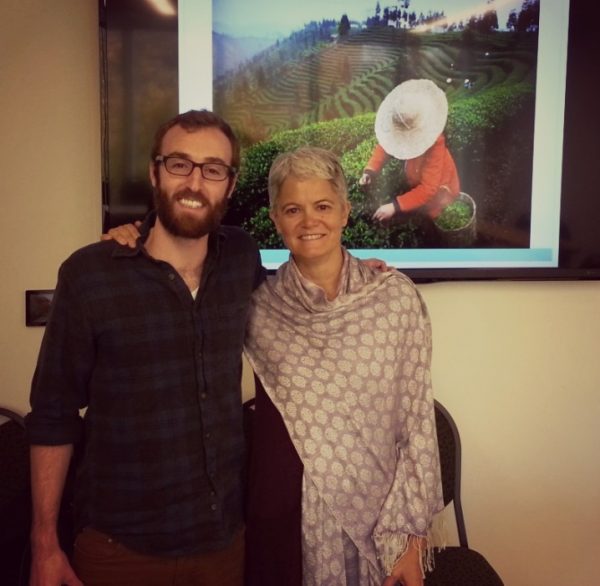
Zach Hutchins: “Ellen has been, since my arrival, the heart of our department, and I struggle to imagine its future without her. She has always been remarkably generous and outward facing; her role in starting the Zambia program and our partnership with the Poudre Library system, through Rekindle the Classics, is inspirational. She was always ready with chocolate, a sympathetic ear, and Pearl, to smooth over whatever hiccups I might be experiencing on a given day. And her home has been the site of my most cherished interactions with colleagues and graduate students. Please, Ellen, reconsider!”
Pattie Cowell: “I remember opening the Coloradoan the day after Colorado began licensing civil unions to find that Ellen and her partner Jules had become the Fort Collins poster folks for gay and lesbian unions. A gorgeous photo of them kissing in the parking lot outside the Justice Center made my day. And apparently it made the day for a classroom full of Ellen’s students as well. When she got to class later that day, the whole class flashed the same photo at her, this time from the Collegian.”
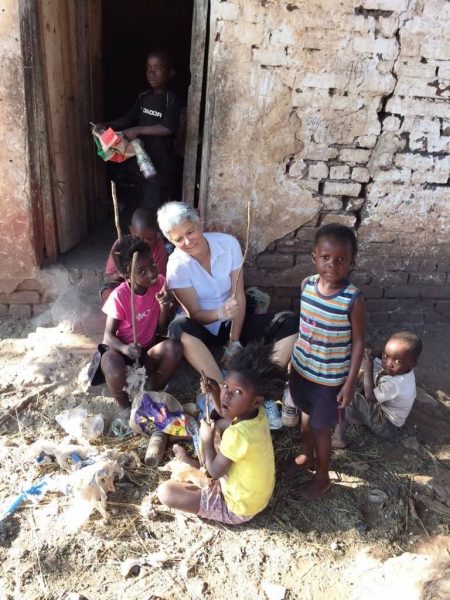
Tirzah Goldberg: “Ellen was my professor between 2010-2013 when I was pursuing my MFA degree in Poetry. She’s since become a very dear friend. One of my most beautiful memories of my friendship with Ellen is actually a memory of a memory. Ellen was once telling me of her time in Ein Gedi, an oasis in the Judaean desert, in her early 20s. She slept without a tent, out in the open. In the early morning she woke to wild goats streaming past her. The Hebrew name “Ein Gedi” means “spring of a goat-kid.” It was the same or another day when Ellen and I were discussing the gorgeous language of Song of Songs. She alluded in particular to an image in verse 4:1. We couldn’t remember the exact translation, and Ellen was leafing through the book to find it: “Your hair is like a flock of goats descending from the hills of Gilead.” That image I retain of Ellen searching for the image of the beloved or the divine in a sacred book, searching for a verse somewhat like a portal to her own lived experience in the words of the ancients, is an image that comes to mind when I conjure Ellen’s generosity of spirit, as both a teacher and a friend. She is always leafing through the pages to share some lyrical teaching: tales she’s told of visiting the monarch butterflies in Mexico with Jules, swimming with manatees, what she’s read and intuited of the psychologies of trees, the best way to harvest herbs, the literature of Jenny Erpenbeck. Ellen, may the pages in the next chapter be home to flocks and flocks of surprising, ancient and sacred teachings.”
Barbara Sebek: “Ellen’s first year in Fort Collins and at CSU coincided with the devastating flood of 1997—she lost treasured books that were being stored in the basement of Eddy, and her living space near the banks of the rising Spring Creek was threatened as well. Thank goodness that she stuck around after such portentous and traumatic early moments! I remember being so excited that someone with a Comp Lit PhD was joining the department, bringing intellectual perspectives that cut across the centuries and cultures. She has added some crucially important and beloved classes to our curriculum (Gothic in Lit and Film, Colonial and Postcolonial Literatures, and more), and adventurous, other-directed programs like that in Zambia and Rekindle the Classics. Ellen was hired for a position in British Romanticism, but drew on her vast and wide reading and interests to develop teaching and scholarly specialties in Victorian/19th-century, postcolonial and anglophone literatures, contemporary film and animal studies, and others that I’m forgetting. One of my favorite essays of hers (which she once described to me as a “love letter to Scout”—her sweet dog whom I knew and loved very well indeed) addresses the depiction of Timothy Treadwell in Werner Herzog’s Grizzly Man. A fan of Herzog, I learned to see that movie from a wholly new angle from Ellen’s work. And let’s not forget the fact that Ellen has more nuanced knowledge of the Denver Broncos and the game than most professional sports columnists. Fare thee well in the next chapter, dear colleague, former housemate and landlord, and cherished friend!”
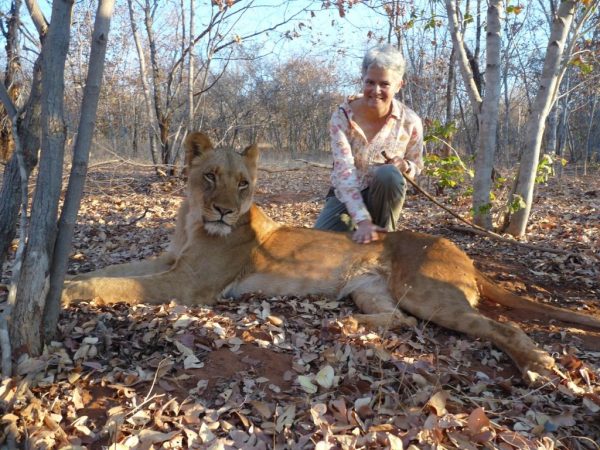
David Lindstrom: “My favorite memory of Ellen is the first. When she flew in for her on-campus interview, Peggy and I were scheduled into our place in Frisco, so we asked if she wanted to ski. Wisely or not, she said yes. We picked her up Friday night at DIA, skied all day Saturday at Copper Mountain, and turned her over to Steve Reid for the ride back to Fort Collins. What a start!”
Nancy Henke: “I took a few classes from Ellen when I was a grad student, and of course both were thoughtfully planned and executed in Ellen’s calm and collected manner. But “calm and collected” doesn’t mean low-energy (not by any means!) What I admire about Ellen is her focused energy: she has a goal for a class session, focuses on achieving it, but is still open and flexible enough for pursuing new paths of discussion and inquiry. I still remember some lively conversations we had in Postcolonial Lit and 19th Century Brit Lit (including the time she scolded our Postcolonial Lit class for how much we detested Kim). And in addition to being a good teacher, she’s just darn interesting to boot. She used to keep bees? Goes on bicycle trips through Europe? Started the Zambia program? Learned Tai Chi? Brings sweet Pearl to campus for all to enjoy? With all those things Ellen was just being Ellen and demonstrating that focused energy toward doing things that interested her and enriched her as a person outside of academia. I will miss seeing her (and Pearl!) in Eddy but am so glad I had the chance to spend a few semesters with her as a grad student and a few years with her as a colleague.”
EJ Levy: There are so many reasons that I’ll miss Ellen Brinks when she retries. I’ll miss her not simply because her quiet brilliance on the northern hall of third-floor Eddy made me smarter whenever I ran into her there, not just because she generously doled out protein bars to the blood-sugar low, and always had some remarkable cultural arcana to share (a great book book recommendation or an article she’d read); I will miss her because she is a model of engaged scholarship, of liberalism in action, of a life of the mind become a life of meaningful action. I will miss being able to recommend her courses to students, who always thanked me later profusely for the recommendation. I will miss her truly fabulous dog, Pearl.
Ellen inspires delight and she inspires engagement–with books, culture, politics, one another, and the world–her participation inspires our participation in literature and art but also in the political process, whether writing letters to get out the vote or supporting communities in Zambia. Not a Jew (as far as I know), Ellen is nonetheless a model of that Jewish tenet–tikkun olam–healing the world.
There’s so much that I would not have known about this marvelous world without Ellen, my world darker without her light: I would not have known the scientific backstory to Frankenstein or that I needed to read Jenny Erpenbeck, I would not have known that the Papillon is arguably the cutest dog breed going, or that a dog could rival the incomparable charm of a rabbit, as Pearl does.
In an ugly age of self-promotion and grandstanding, Ellen has been a lodestar, a model of unassuming brilliance, of intellectual rigor and community engagement, of leadership, courage, integrity, generosity, kindness, and tonic honesty–
I hope that I won’t *have* to miss her; that I and we will continue to see her, in the wilds of Telluride or the Lyric or out with Pearl and Jules, enjoying the beautiful world she has helped make more beautiful.”
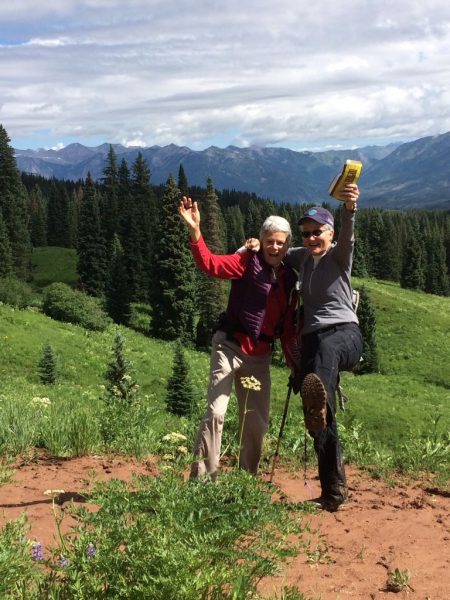
Marnie Leonard: “Perhaps there’s nothing you can’t do. You’re knowledgeable and inspiring (your students attest to this); precise (your information is always informed and reliable); compassionate (you’re truly dedicated to your family, and to those students at CSU and Zambia whom you have guided); you’ve broadened community appreciation in literature (via Rekindle the Classics), and you are generous (having shared with me a deeper understanding of Dickens and of Gothic literature). These are some of the things I’ve come to know about you and, no doubt, those who have known you longer could easily add to this list. I’ll miss you—we all will. May your retirement be all you hope it will be!”
Louann Reid: “In my mind, I carry two iconic pictures of Ellen. The first is of a photo taken in 2015 of her sitting on dusty ground, surrounded by children, creating ecobricks in Zambia. The second is a mental image of her seated behind her desk in her book-filled corner office in Eddy. Sometimes, Pearl is there, too. Those images remind me of Ellen’s commitment to service and her dedication to scholarship, to learning and teaching. In addition to her impact on students through teaching and advising, Ellen’s new ideas for the department have been significant—among them the Zambia Community Health and Education Abroad Program, Rekindle the Classics, professionalization opportunities for graduate students, and an improved GTA selection process. I appreciate Ellen’s contributions and will miss her presence.”